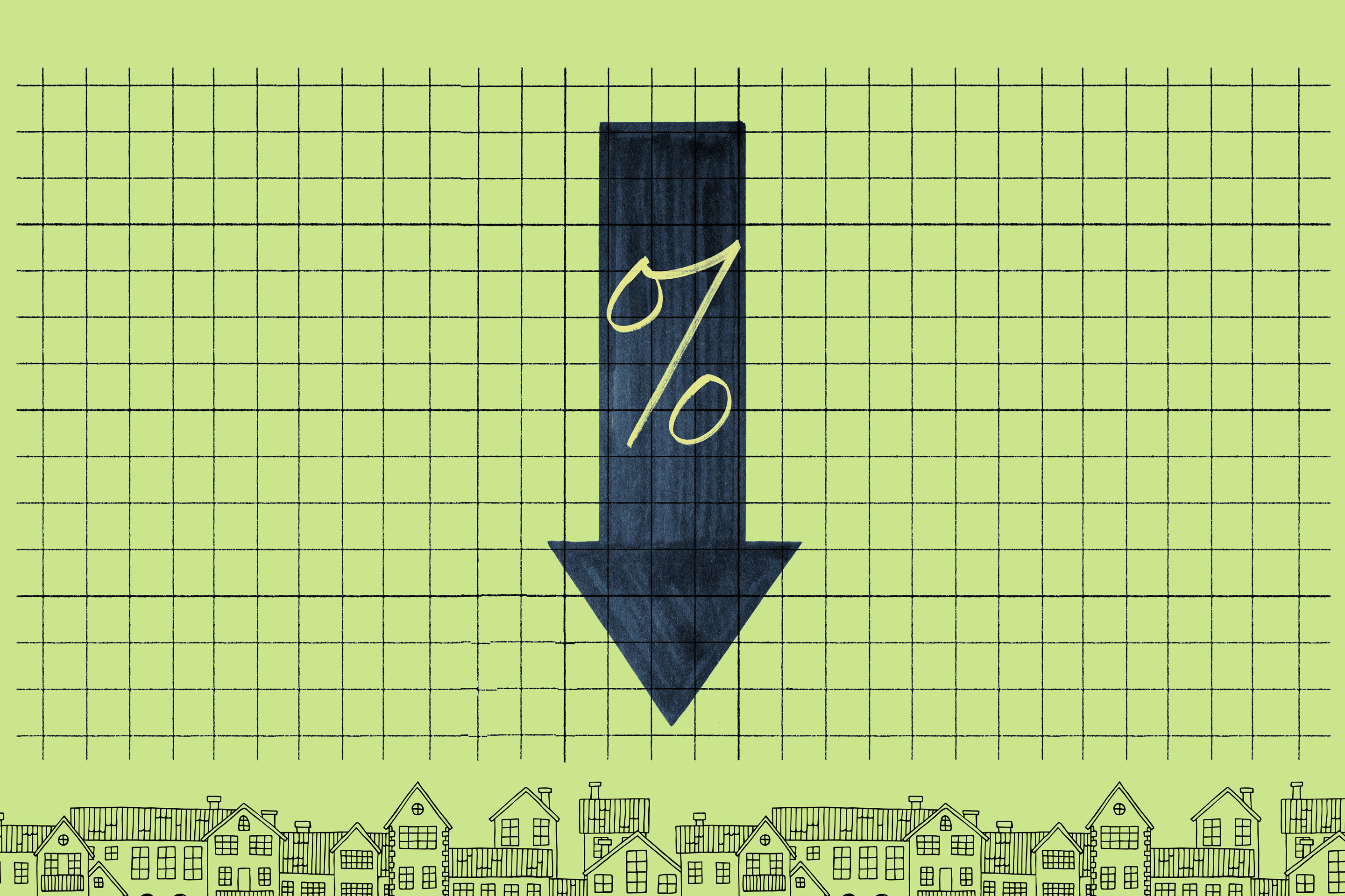 [ad_1]
[ad_1]
Homebuyers can breathe a small sigh of aid: Mortgage charges are down for the fifth consecutive week.
Debtors contemplating a 30-year fixed-rate mortgage discovered charges averaging 6.27% for the week ending April 13, a decline of simply 0.01 share factors, in response to Freddie Mac's weekly fee report. These in search of a 15-year fixed-rate mortgage discovered charges averaging 5.54%, a decline of 0.10 share factors.
This development, paired with lessening inflation and different financial enhancements, is "creating optimism amongst potential homebuyers because the housing market hits its peak within the spring and summer time," stated Freddie Mac chief economist Sam Khater, in a press launch.
Decrease charges have already had an impression on some consumers. The entire variety of mortgage purposes, together with each buy and refinance loans, elevated by greater than 5% for the week ending April 7, in response to the Mortgage Bankers Affiliation.
Buy purposes, that are made when shopping for a house, have been up by a seasonally adjusted 8% week-over-week.
"Potential homebuyers this yr have been fairly delicate to any drop in mortgage charges," stated Mike Frantantoni, senior vice chairman and chief economist for the MBA, in a press launch.
Over the past three years, see-sawing mortgage charges have dictated the variety of houses being bought, and have quashed the everyday seasonality of the housing market.
Right now's consumers now face the mixed problem of excessive house costs and low stock — which, collectively, have pushed many would-be consumers out of the market.
Inflation is slowing down
It seems to be just like the Federal Reserve could also be inching nearer to its objective of slowing the financial system down sufficient to convey inflation again underneath management. The cooldown might not be quick sufficient, although, to maintain the Fed from rising short-term charges once more.
The U.S. financial system added 236,000 jobs in March, in response to a report launched Friday by the Labor Division. That is the lowest reported enhance since December 2020.
Wage development additionally confirmed indicators of slowing, with hourly earnings ticking up by 0.3% from February. 12 months-over-year, wages have been 4.2% larger, the bottom enhance since mid-summer 2021.
Client costs, for his or her half, elevated by a barely lower-than-expected 5% year-over-year in March; the bottom enhance in costs since Could 2021, in response to a separate report from the Labor Division.
All of this factors to the probability that the financial system is headed in the appropriate route. That stated, inflation remains to be greater than double the two% goal set by the Federal Reserve, which means additional hikes to the federal fund fee — the short-term rate of interest banks cost one another to borrow cash — may very well be in our future.
Many specialists are actually predicting that the Fed will enhance that fee by one other 0.25 share factors at its subsequent Federal Open Market Committee assembly in Could.
So long as progress continues to be made on the inflation entrance, mortgage charges ought to keep "on the decrease finish of the 6% to 7% vary," stated Danielle Hale, chief economist at Realtor.com, in ready feedback.
The Fed began rising the federal fund fee final March when inflation was above 7%. To date, the financial institution has applied a complete of 9 fee hikes — all designed to extend or "tighten'" the price of borrowing, decelerate demand and produce shopper costs again down.
Extra from Cash:
Greatest Mortgage Lenders of 2023
The way to Get the Lowest Mortgage Fee: A Step-by-Step Information






0 Comments